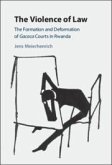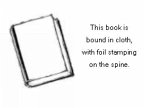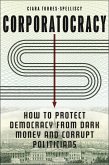In Law and Hoarders: Organized Crime and Corruption in Haiti, the author, Woodger Faugas -- a licensed attorney who grew up in Haiti and senior medical student at the University of California San Francisco (UCSF) School of Medicine -- methodically explores Haiti's hampered development through the lens of effective bureaucratic governance and corruption, accentuating the nation's ongoing struggle since it earned its independence more than two centuries ago. Amidst the turmoil of more than 30 coups d'état and shadows of anti-Black, foreign influence, Haiti has wrestled with the heavy chains of underdevelopment and systemic corruption, fueled by cronyism and bribery, stemming from the systemic ramifications of an oppressive indemnity imposed by France. The book's overarching narrative zooms in on President Boniface Alexandre's establishment of the Unité de Lutte Contre la Corruption (ULCC): a landmark initiative aimed at curbing governmental corruption as well as cultivating a managerial culture centered on accountability. With an obligation to safeguard Haiti's public assets, the ULCC has represented a beacon of hope-a semi-autonomous entity endowed with the authority to challenge corruption within the Pearl of the Antilles. Applying a rigorous analytical lens, the book delves into the effectiveness of the anti-corruption measures implemented before and after the ULCC's inception, framing its inquiry around the all-important question: Have the ULCC's efforts outcome-determinatively mitigated the corruption that has enduringly plagued the country's public sector? Given the promise embodied by the ULCC, the book concludes by presenting various edifying acknowledgments. Ultimately, at its core, Law and Hoarders does not exclusively entail a history of corruption and reform but also serves as a clarion call for a multifaceted approach to combating corruption. Peer-reviewed by seasoned attorneys with years of international legal work experience, e.g., in Brazil, France, the U.S., and the Netherlands, this work stands as a critical contribution to the contemporary discourse on governance, corruption, and reform, offering, simultaneously, a detailed account of Haiti's challenges as well as a hopeful perspective on the potential for meaningful, public sector management change.
Hinweis: Dieser Artikel kann nur an eine deutsche Lieferadresse ausgeliefert werden.
Hinweis: Dieser Artikel kann nur an eine deutsche Lieferadresse ausgeliefert werden.








